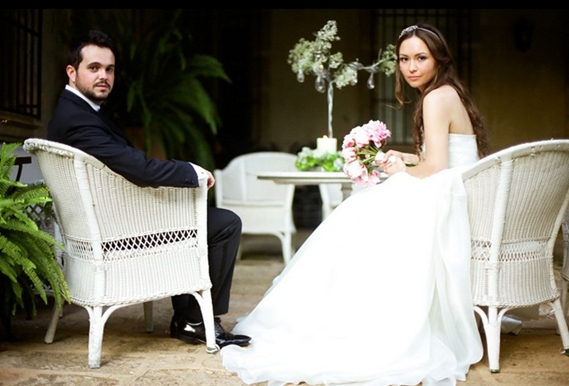
How to get married in Spain: it’s not as easy as you might think
If you’ve always wanted to get married in Spain, although the Spanish marriage laws can be quite strict, it is still possible to do. For a civil ceremony, however, one spouse does have to be a Spanish citizen, a resident or registered in the municipality you want to get married in.
If you and your prospective spouse don’t fit any of these requirements, while it still may be possible in some municipalities with a special dispensation, which you can check into yourself, it’s highly unlikely in many others.
Spanish churches, however, do differ in their requirements so, if you are turned down by the Civil Registry office and you’d like to have a religious wedding in Spain, you may want to consider approaching churches in the municipality where you would love to have your wedding ceremony.
If, however, you or your soon-to-be spouse are Spanish, a resident of the municipality or registered there, getting married in a civil service does still have other requirements, so it’s not all easy sailing for you either.
How to get married in Spain: requirements
1. The first thing you must do is to go to the Civil Registry office in the municipality you plan on marrying in and let them know you would like to get married.
2. As requirements at each Civil Registry office are different across Spain, the registrar will tell you which documents you will need to submit in order to be married in that particular municipality.
These, however, will usually include yours and your future spouse’s birth certificates, valid passports or residency permits, and certification that both you and your partner are currently single. If one of you is divorced, you will have to submit the divorce papers.If one of you is a widow, the death certificate of the deceased spouse must also be submitted.
A voter registration card is also usually requested from the person resident in the municipality.
Don’t be surprised if you are asked for other documents, as red tape in Spain is widespread with sometimes little effort to keep it consistent across the country.
3. Remember too, any documents you submit will have to have their original documentation submitted, as well as a Spanish version. So be prepared to pay for the costs of translation services for each document.
Each document must also have a valid Apostille certificate with it, and you will have to pay per document to get this, which can be a total of several hundred pounds or euros depending on the number of documents you will be submitting.
4. Once all the paperwork has been submitted to the Civil Registry and it has been accepted, you will then have a waiting period before your wedding in Spain can take place. That waiting period will be at least 3 weeks, or 21 days, and can be as long as six months, or 180 days, for all your paperwork to be processed and your application to be married accepted. Never mind, though, as it will give you time to plan your dream wedding.
If you are currently living outside Spain, this will mean you will have at least two visits to Spain, and possibly several more, before you are able to finish arranging your wedding and actually get married.
While you now know how to get married in Spain, you have probably also realized it’s not one of the easiest countries to do so, if you are not a Spaniard.
If you are determined to have the wedding of dreams and that wedding means getting married in Spain, do be assured it is possible so don’t let anyone deter you from doing it. After all, love will always find a way.
Good luck!



